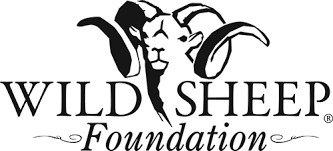WSF: A New Breed of Sheep Dog
Bozeman, Montana- According to Wild Sheep Foundation (WSF), dogs trained to detect diseases in wild and domestic sheep from their scat are part of a new program with the Montana-based nonprofit Working Dogs for Conservation (WD4C). The program is showing promise in combating disease pathogens, which are reducing live weights in domestic sheep and killing wild sheep.
“Poop sniffing dogs, who knew?” commented Gray N. Thornton, President and CEO of the Wild Sheep Foundation. “We are thrilled to have another tool in the toolbox for keeping wild sheep on the mountain. Beside over abundant predators, the bane of wild sheep today is disease transmission. There is more work to do, but what we’ve seen thus far, our canine friends could be a game-changer.”
The project is in partnership with the Wild Sheep Foundation, Montana Fish Wildlife and Parks, and Utah and Montana State Universities to put dogs’ extraordinary scenting abilities to use in saving wild sheep. Bighorn sheep face significant challenges from respiratory diseases transmitted from domestic sheep.
Dog’s noses are renowned for detection, that is, their ability to sense very low concentrations of odors—as little as one part per trillion. They are also exceptionally good at telling the difference between two very similar odors. This capacity for discrimination is critical for many medical applications currently using dogs, including detecting cervical and ovarian cancers before laboratory tests, detecting blood sugar crises in diabetic people, and even coronavirus infections in asymptomatic patients.
“We have demonstrated that our dogs can discriminate the scat of infected domestic sheep from those of uninfected sheep, explained Pete Coppolillo, Executive Director at Working Dogs for Conservation. “Now, we’re working hard to extend that ability to wild sheep as well.”
WD4C staff will also be conducting aging experiments on the scats to learn how long the odor persists when scats are exposed to sun, wind, and rain and for how long the differences in positive and negative scats’ odor profiles persist.
“Once these trials are complete, livestock, wildlife, and land managers will have new tools to help wild and domestic sheep coexist,” Coppolillo continued. “Our dogs could help prevent the inadvertent spreading of disease during wild sheep captures by having a trained dog to screen scat from the sheep staging to be moved—if any of them are infected, they stay put or are removed from the population. We are so grateful for WSF’s investment and collaboration in this project. We’re opening doors to new ways to protect sheep, and we’re excited to see the benefits.”
Dogs may eventually be able to sample a herd’s disease status within their habitat without capturing or handling a single animal. The same techniques could help domestic sheep producers ensure that their herds aren’t adversely affecting wild sheep.
“There is still work to be done, but WSF is all in,” Thornton added. “If we can detect infected animals without captures and handling, what we invest in these testing captures can be put to other uses, like habitat enhancements. More importantly, will be the ability to translocate wild sheep to new ranges with high confidence that we’re moving healthy sheep and not spreading disease along with them.”
To learn more about Working Dogs for Conservation visit their website.
###
The Wild Sheep Foundation (WSF), based in Bozeman, Mont., was founded in 1977 by wild sheep conservationists and enthusiasts. With a membership of more than 10,000 worldwide, WSF is the premier advocate for wild sheep and other mountain wildlife and their habitats. WSF has raised and expended more than $140 million on wild sheep habitat and population enhancements, education, and conservation advocacy programs in North America, Europe, and Asia to “Put and Keep Wild Sheep On the Mountain”®. These and other efforts have increased bighorn sheep populations in North America from historic lows in the 1950-60s of 25,000 to more than 85,000 today. www.wildsheepfoundation.org.





